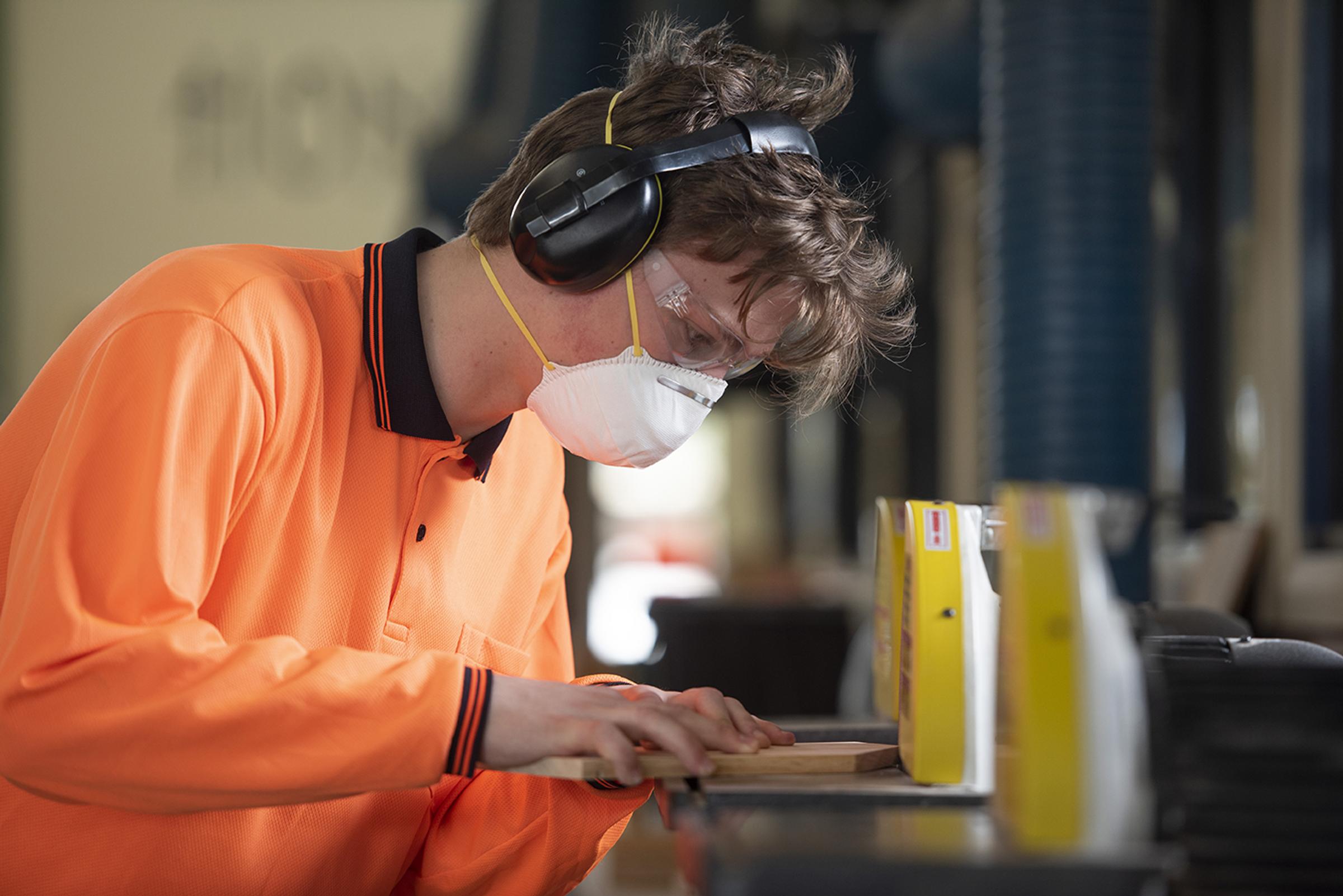Year 10 Technology

PRODUCT DESIGN & TECHNOLOGY: MATERIAL
Students will investigate and make judgements on how the characteristics and properties of materials, systems, components, tools and equipment can be combined to create designed solutions from wood, metal and plastics. Students will establish detailed criteria for success, including sustainability considerations, and use these to evaluate their ideas and designed solutions. Students communicate and document projects, including marketing for a range of audiences. They will independently and collaboratively apply sequenced production and management plans when producing designed solutions. They will also learn to share and communicate their ideas by utilising CAD (computer aided drawing) techniques.
The skills developed in this course are transferable to a range of industries and occupations including industrial design and all areas of product development and manufacture.
Please note that this subject has a subject charge of $100 for materials (Correct at time of publishing)
PRODUCT DESIGN AND TECHNOLOGY: TEXTILES
Students design and make a range of Textile products, developing their ability to work through constraints and considerations of a Design Brief. They will use a range of techniques and processes to create decorative surface designs on fabric and make their own Textile products. There is an emphasis on skill development including creative and critical thinking, application of practical skills, examination techniques and SAC’s. Assessment will include a folio workbook that includes evidence of each stage of the Design Cycle. As well as an extended written evaluation of final products, processes, product use and sustainability. Students who enrol in this subject should have interest in working with fabric and some experience in drawing and design.
Please note that this subject has a subject charge of $100 for materials (Correct at time of publishing)
FOOD STUDIES
Students will build on prior knowledge and continue to develop skills in design and production by producing a variety of savoury and sweet dishes. They will begin to have an understanding of the functions of ingredients in a dish. Students will investigate and evaluate issues to do with food and its role in food preparation and presentation. They will also learn and practice food preservation techniques used in the food industry. Students will develop, follow, produce and evaluate their own design briefs and they will have opportunities to develop their own dishes that meet specific standards. By the end of this course, students will be ready to undertake Units 1 and 2 in Food Studies.
Please note that this subject has a subject charge of $65 for materials (Correct at time of publishing)
SYSTEMS ENGINEERING (ELECTRONICS & ROBOTICS)
Students will learn about the principles of engineering and apply them to systems associated with small engines and automotive processes. Students will discover how four stroke engines work and how to dismantle and service a small engine. Students will also learn a range of skills used in servicing automotive and engineering systems including metal hand tools and OHS practices. Successful students will demonstrate their ability to safely carry out basic service procedures like lifting a vehicle, removing and charging a battery plus checking and changing fluids.
The skills you will develop in this course will prepare you for employment in any field but specifically for Automotive and Engineering Trades.
Please note that this subject has a subject charge of $100 for materials (Correct at time of publishing)
Applied Computing
Applied computing will focus on the fundamental concepts of procedural programming where students undertake a number of programming challenges. Through these challenges they will work through all stages of developing digital solutions, from investigating requirements, creating and designing the user interfaces, and programming the digital solution in an object orientated environment. Student will also investigate cybersecurity issues. Contemporary digital constructs such as gaming, social media and online communication tools will be a focus.
